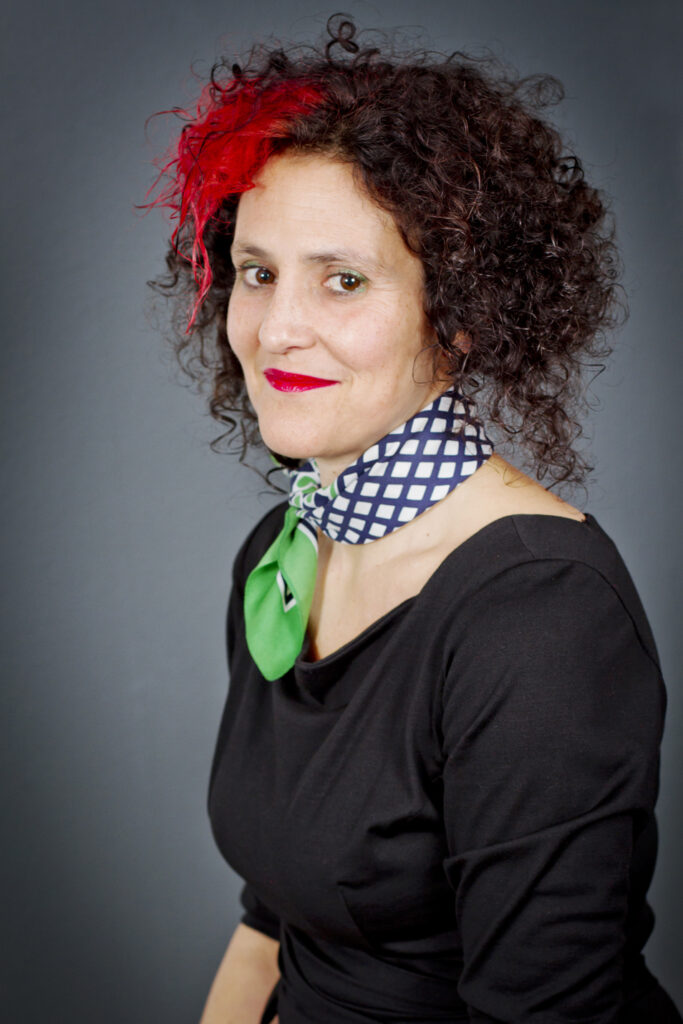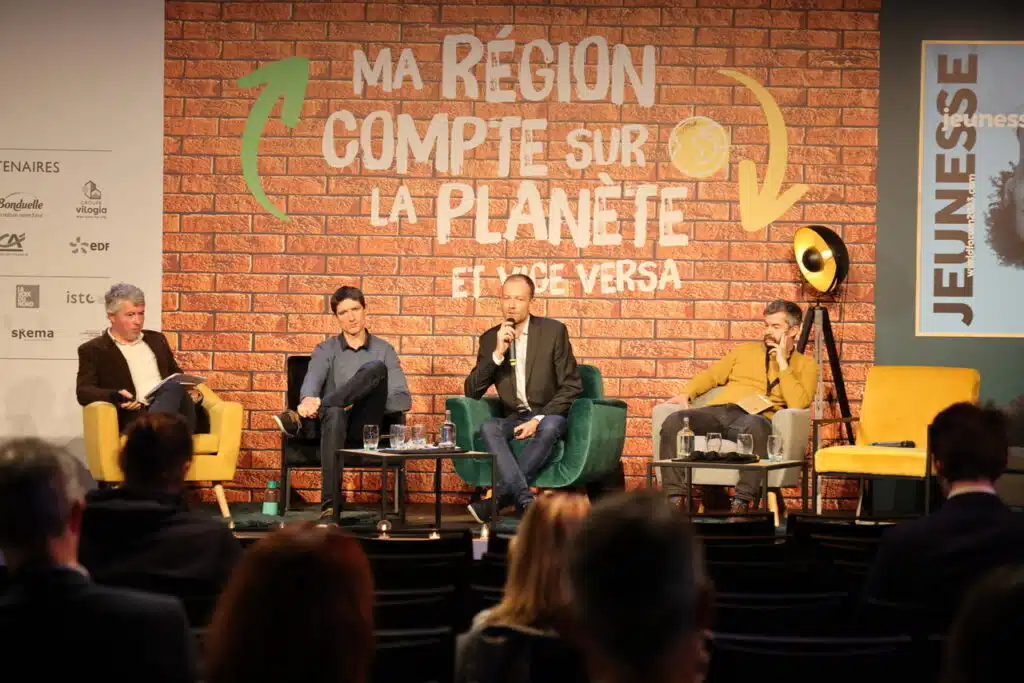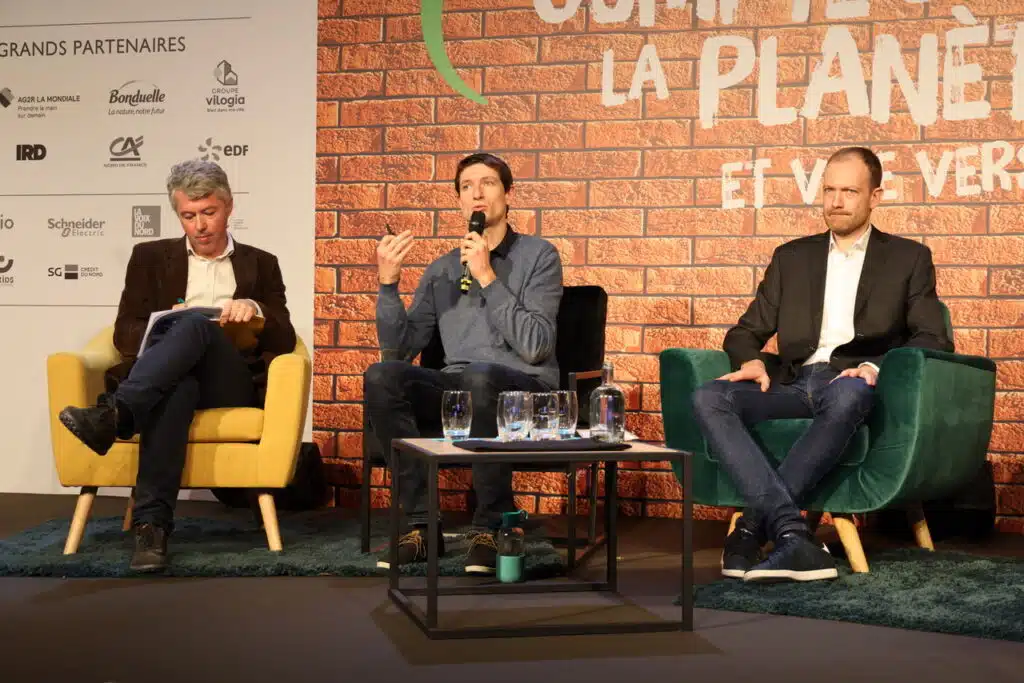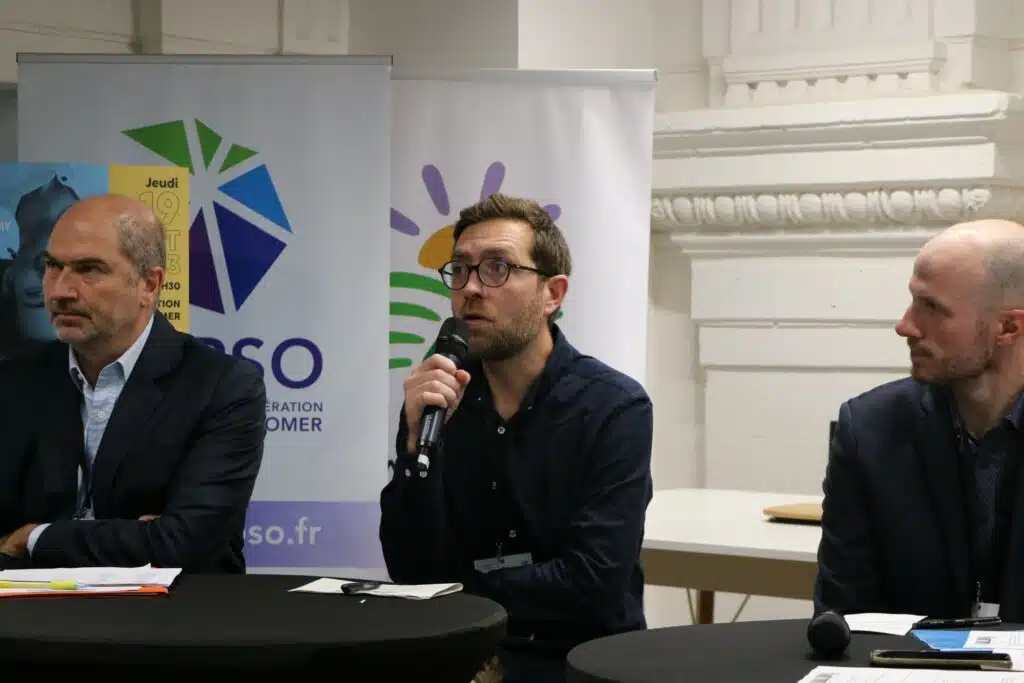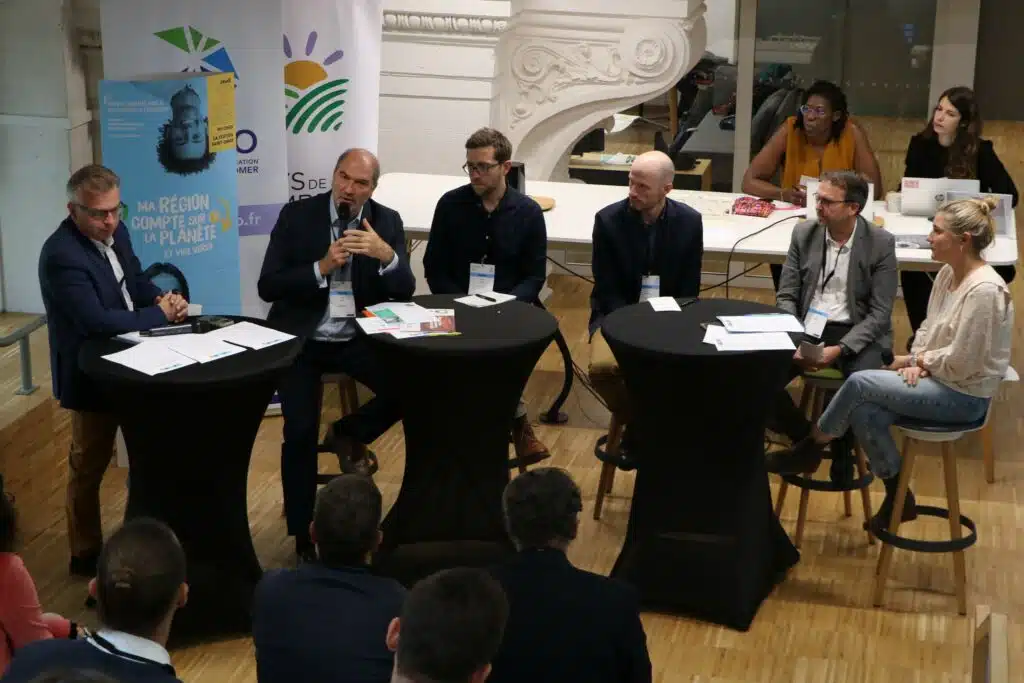5 questions for Benita Matofska,
founder of thepeoplewhoshare.com
1. A quick introduction : who are you Benita and how did you get into the Sharing Economy topic ?
I am the founder of thepeoplewhoshare.com that is a global network through which we help people and companies discover, participate and access the Sharing Economy
We are the organizers of the #globalSharing week, that has reached over 100 million people over the world today.
I am also a speaker and a writer on that topic, and I am based in Brighton, Uk.
I have a background in broadcasting on TV, I worked 20 years in that sector, then back in 2009-2010 I left to work in the charity sector. I participated to the social entrepreneurship movement with the role of “head of global entrepreneurship” of an organisation aiming at inspiring and equipping young people to become entrepreneurs with a positive impact in the society they live in.
One of the most tumbling experience in my life was when I was invited to speak at the OneYoungWorld Congress and be a counselor, a mentor. There I heard at my side such inspiring speakers as Bob Geldof, and from that time the word that would not leave me was the word “sharing”: I did not know necessarily know what this exactly meant, but I just knew that this was part of the solution to the problems we were facing in our world.
Then going on thinking about it, one day I got up understanding that the main issue to tackle was the shortage of sharing. How could we do that? By finding a niche where the is a shortage of sharing and developing a sharing economy approach in it.
Regarding the “sharing economy” term, no-one was using the two words together back in 2010-2011. Maybe there would be people talking about “collaborative consumption” but not “sharing” and “economy” together. Through sharing economy we were aiming at a broader meaning that would not only involve collaborative consumption; a socio-economic system of human sharing resources, be them material or not, involving various processes and realities like co-creation, sharing of material resources, making connexion, co-operatives, and so on.
I am part of the people who helped define it 5 years ago. You can google “what is sharing economy” to read my blog about it. It is a term that includes many others like collaborative economy, circular economy, gig economy, on-demand economy, collaborative consumption.
All in all, to share is to be human: we would not have survived over all that years without sharing and I believe that today we need it even more.
2. I’d like to ask you some questions as a co-founder of thepeoplewhoshare.com:
a. Which kind of people (job, type of interest for the Sharing Economy) have joined the network since the beginning?
In 2011 I approached a number of different organisations who were working broadly in this area of social change: the co-operative movement, voluntary movements, etc. Then we were putting together an event called CrowdShare bringing together people who were active in various activities like clothes swap, food sharing, FairShare, car sharing, etc.
So we brought all those kind of organisations together in a kind of physical marketplace so that people could discover them all at the same time. We had shared tables, music and poems, collaborative art project, skillsharing (like young people teaching skateboard to older ones!).
We had 400 participants in total from those organisations and people from the local community. It was part of an international event, the Brighton festival.
b. How did the network evolve over time?
Our model is a partnership model, a catalytic model.
We started off building 45 partnerships with organisations in the UK, some of them being global in themselves. We decided to launch an event called National Sharing Day in June 2011. We had no money around the campaign back then but a lot of passion to share. It just went viral with local events all over the country and plenty of conversations on Twitter from the UK to Ukraine and Philippines.
Then the following year, in November 2012, we decided to run Global Sharing Day, and launch that from the House of Parliament to raise political attention about the Sharing Economy, which we achieved.
From then on, it became a global phenomenon, being mainly driven by those organisations and by a crowd of 15 million people at that time.
Rather than speaking as one brand “the people who share”, we decided to show this collection of logos altogether, representing all that crowd and that organisations. It was all about that collective co-creation.
Today we are an open network that has reached 160 partnerships and where the people can participate and put up their own events.
c.What were the most discussed topics 5 years ago?
5 years ago, people had a lot of questions about what the sharing economy was and they had very few reference points.
The questions back then were: “What does that mean? What do I share? How can I be involved in my everyday life?”. It was better understood when it came to holidays, traveling, and exploring people’s places. So something you would only do occasionally.
d. What are the most discussed topics today?
Today, people have more reference points, with companies like AirBnB (and so on) that got a lot of echoe in the media. I also observe that people relate it more to what happens in their everyday life: how you work, who you work with, how you bank, how you buy new things, etc.
We started a directory on thepeoplewhoshare.com . In 2011 we had about 50 initiatives referenced and now we are featuring more than 9,000 initiatives and platforms, and I am sure we have not captured them all.
e. I guess you mentioned “towards a fairer sharing economy” and towards better conditions for the workers of the sharing economy. Could you describe us today’s situation and illustrate with 1 or 2 examples you would know of?
On the one hand let us talk about the demographics. Back in 2010-2011 in the early days of the sharing economy, the people who were driving it and by that I mean those who were participating on these first platforms and initiatives and helping them grow, what I call the “generation share”, were mainly white middle-class high-earners young people who liked adventure and discovery, not really interested in owning but rather in sharing, just willing to access goods and new experiences.
That was the typical demographics 5 years ago.
From then on, we have been looking to who was actually benefiting from it since the purpose was to develop the sharing economy in the way that it would create a more equitable society; so what about the older people? what about people at the margin of society and those who are with low income?
Lately a study was able to show that people with lower-income backgrounds were now benefiting 3 folds from the sharing economy because this is about having access to resources they cannot afford owning.
In terms of social impact, we also know that an organisation like FairShare for example delivered 18.3 million meals from food diverted from landfills for people living in food poverty. In fact there are many organisations like FairShare actually doing an incredible job everyday with social impact through the sharing economy.
To me the issue is that the emphasis by the media has been put on the Vc-backed Silicon-valley companies who have been valued at billions of dollars. This is not representative of what the sharing economy is and about what it is doing.
I would say that we are at a critical junction right now; in fact I believe that there is a danger that the sharing economy ends up benefiting to just a few. I see many people who claim to be building sharing economy initiatives and when you look at their personal lifestyle you do not see anything about sharing: do they share their resources? Do they collaborate with others? Do they share the power that they have themselves? No. And that is part of the issue.
On the other hand, talking about the workers of the sharing economy, we know that the future of work will be very different. People work more and more by passion instead of having a job for life, they work more on the move. The whole idea of being in an office is becoming completely redundant, and individuals are going more and more in coworking space. They even share jobs and the projects tend to be task- and freelance-based.
So of course with that new situation of freedom, some challenges come up: how do we protect those freelance workers? How can we provide them with an insurance? With adequate trainings? Which new childcare solutions will be created for those freelance women and men?
I believe that workers’ support and workers rights is going to be the next phase of growth, the next vertical in the sharing economy.
Some services are already starting to pop up like Peers.org that propose services for workers in the sharing economy in the US. We have trade unions in the UK like Sharing Economy UK for example.
We also see the rise of a movement of freelance unions in Europe, sometimes along with protests like it happened with Deliveroo or Uber workers.
3. Would you have a step-by-step for a citizen or consumer to be able to identify a fair Sharing Economy initiative versus others?
First, I would be asking the question: what is the wider society benefit? what is the purpose? Is it only to make profit or is there something for society before? So for example if you see someone engaging in StreetBank (https://www.streetbank.com/) it is very clear what the social benefit is.
Then I think it is important to understand that there are many different ways of sharing. For example, it is true that some big companies generally identified as part of the sharing economy and that make huge profits (as Uber), facilitate the sharing of resources. However I would be always asking: what could they be doing more to create more sharing? What else could they share? Why can’t they share a percentage of their profit with the users who are contributing to their project? I think those are questions we should directly ask those companies..
Moreover I would ask myself: what else can I share today? Maybe I could share home divce with my neighbour through streetbank? Or a mortgage through shareamortgage.com for example? What could I be doing? Could I help or participate in a way to organisations like FairShare or LyftShare (who charge companies but not individuals for carsharing) for example?
Finally why always buy new goods when I just need to access them? If I need new clothes why not going to clothes swap instead of buying them? Do I need something new or is it ok if it is reused? How much do I really need to consume?
In the end I believe it all boils down to that idea that “we are what we share”.
4. An advice for an entrepreneur launching a new sharing economy service, so as to build the fairer platform possible for its users, workers or contributors?
Well, firstly, I would say that the most important aspect of it is that your business purpose should always start from a position of need, that is to say start from a situation where there was nobody that was able to give access to a solution to a certain need. Do not try to find a demand for something you (just you) want to do. There should be a genuine pain point. You should be creating a business out of need, not out of purpose.
Secondly, I guess that you should be trying to understand if the world will be better off thanks to the new solution you propose. In my opinion the best way to find the answer to that question is to go talk directly to the people, create the conversational infrastructure with the users, keep on speaking to them. Then surely you will see how valuable your product or service actually for the people and for the planet, and you will make sure that what you are offering is coming from an actual demand, not just from you willing to push your new idea.
Finally, a key question: is it going to help employment or not?
5. A Sharing Economy project you are working on these days and what you are doing differently today in comparison with the first sharing economy projects you were supporting or involved in?
I have always done a lot of work raising awareness, doing education and advocacy on the topic, through public speaking for example.
Regarding my consultancy, I would say that is very practically focus. It is about how companies can engage in the sharing economy, be them large corporations trying to see: what could the market entry point be? how can they engage in this space?
Indeed for that big companies to be sustainable, they need to engage into the sharing economy. It is not longer a nice-to-have and those who will not find ways to engage with the crowd will die. It is very straightforward.
I usually do masterclasses with the CEO and management teams following a 3-phase model:
1) understand why this is important for their sector, study what is the strategic market entry point;
2) come back with actionable recommendations;
3) put them in touch with the right partners and people of our innovation network to co-build their solution: it could be a tech solution, a brand building exercise, a communication work, or employee sharing for example.
We also give advice to entrepreneurs: where they should go get the money for their sharing economy project, what kind of money, from whom. We are always aiming at having a minimum amount of money being wasted by building useless things, which unfortunately I see happening quite often.
On the other hand, we are launching the world’s first acceleration program for entrepreneurs who want to start a sharing economy initiative. This is going to be a 6-weeks program. 5 or 6 social enterprises will be selected, helped by mentors selected from all around the world. So we want to leverage the power of the crowd, using a tribal-tested model, to support them with the creation of the key building blocks of their model.
I also want to understand more about the demographics behind the sharing economy, learn how it is evolving and document it in the form of a book. In that respect I am preparing a world tour for which we are launching a crowdfunding next month. This is also important for me to understand who are the people who make the sharing economy everyday.
Thank you very much Benita!
Interview by Habib Belaribi (habib@socialmediasquad.cc / +34 631 21 85 91) for the World Forum for a Responsible Economy Forum‘s blog.
